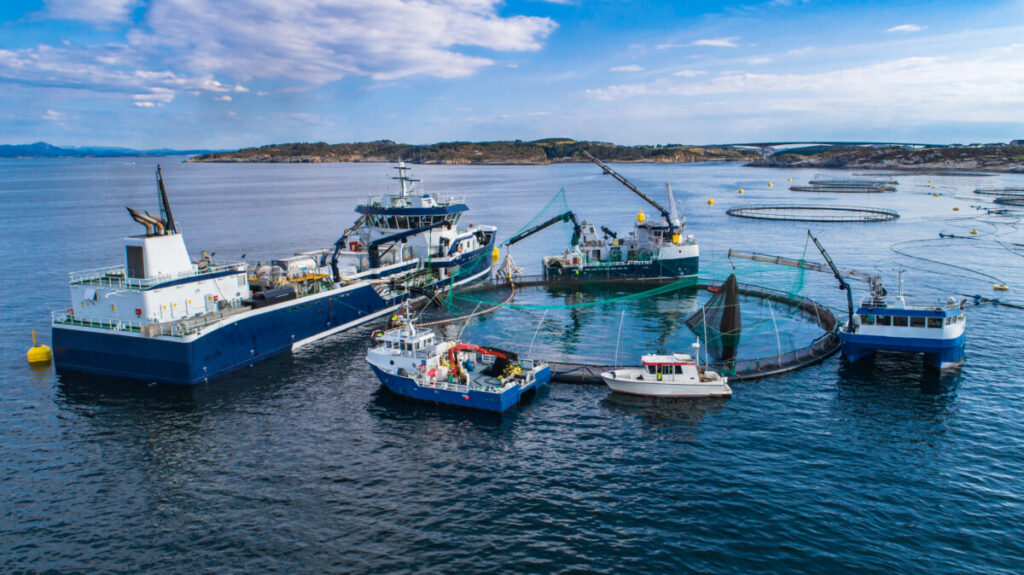It’s time to save the world with the help of one person at a time! It may sound cliche, but the conservation facts do not lie. This is done through understanding the various ways we need to understand conservation.
Beyond pop culture, there are fascinating worlds that tend to get overlooked by the public in meaningful ways. That is the glorious world of our forests, oceans, and wildlife.
When one begins to understand why conservation is so important, compassion and problem-solving desire can be the result!
We hope that this heartfelt and fact-filled post about conservation finds you well. It will be informative and a way to open your heart to the mission behind it all.
Forest Conservations

Animals Are the Lifeblood of Conservation For Us
It is a sad reality that poaching, excessive hunting, and the destruction of animal life have dramatically increased. People may not realize that 90% of plants, trees, and other forest life depend upon the seeds from the animals.
When there is a reduction of those seeds being produced in a forest, it reduces how much forest life reproduces itself.
When forests are not reproducing, plants and trees impact our oxygen levels. Forest conservations have to be a global effort.
Life-Giving Trees

Since grade school, most of us have been aware that trees do their magical thing of converting carbon dioxide into the oxygen we breathe. Most of us may not know that over 20% of the world’s oxygen is produced in the Amazon rainforest.
The Power to Potentially Heal Cancer

It’s mind-blowing and interesting to realize that many cancer-fighting prescription drugs sold all over the world come from what has been discovered in plants found in the rainforest. There are said to be over 120 prescribed drugs that are rooted in plants from the rainforest.
The Forest: a Warrior Against Climate Change

The amount of concern that climate change has brought into our world over recent years is slightly alarming. However, nature, specifically tropical forests, has the superpower of sequestering carbon by about 30%. That alone has a major impact on stopping climate change.
Funding for climate change is allocated in various directions. Sadly, only 2% of that funding goes to nature-based operations, including Forests.
Imagine if more of the funds were allocated to nature-based initiatives. Perhaps the issue of climate control would not be as much of a concern.
A Source of Life
In our well-developed world, it is easy to forget that other people rely on the forest for their livelihood. Believe it or not, more than 1 billion rural people depend upon the forest more than many of us ever will. Mainly, those who live in absolute poverty depend on the elements of the forest to stay alive.
There is an interesting circle of life dynamic going on here. If we somehow can help the poverty referred to above, they continue (in their way) to foster the health of the forests. In turn, they benefit the world because our oxygen levels will be high.
See Related: Environmental Leaders from Around the World
The Forest’s Role in Biodiversity
Biodiversity is a huge component of what happens in our forests. The biodiversity rate is 50%. As that number decreases, it should be a cause for concern.
Biodiversity represents the various microorganisms, fungi, plants, and animals that make our natural world go round. All of these ingredients make up the ecosystem of the biological world. These elements are needed to support clean water, medicine, shelter, and food properly.
See Related: Green Revolution Pros and Cons
What About Pharmaceuticals?
Nature does not get enough accolades for its role in the pharmaceutical industry. The facts state that about 25% of medicine used by Americans comes from Tropical Rainforest plants.
Pretty amazing, huh?! It does everyone a great disservice to understand our forests’ danger because, grandly, it alters our medical supply.
Plant Extinction

Let’s get a little more specific on the topic of medicine and its connection to forests around the world. Currently, 3400 plant species within the tropical rainforest will soon be just a memory. They will go extinct if something is not done to sustain and reproduce them dramatically. We can’t afford that!
See Related: 12 Types of Terrain You Need to Know
Water Conservation Facts

Check Those Leaks
Ready for some interesting water conservation facts? One of the biggest water losses comes from our leaky faucets at home.
In fact, on average, every household’s indoor water use loses about 14% of water daily! Think about that for a minute. That is 10 gallons a day for just about every household. The remedy is to have all faucets and toilets checked for leaks.
Individual Water Usage
Most of us probably never consider the amount of water we use daily. However, Americans use about 100 gallons of water every day. When a whole family is included in the picture, that equals around 320 gallons a day.
Alarming Leakage Facts
Facts about water conservation can get a bit cringe-worthy. The abovementioned water leakage in almost every home still doesn’t quite paint the picture that needs to be seen.
The water leaks caused household waste of over 1,000,000,000,000 gallons of water just nationwide every year. This is based on the annual water usage of 11 million homes In the United States.
Daily Household Usage

On a national scale, water usage is around 27.4 gallons of water daily! That is not worldwide, my friends. It’s in the United States of America. Then 30% of that water usage is accounted for by outdoor use.
When such a broad picture is painted, it is concerning. However, if we all understand how to conserve water and study conservation facts better, how much can we bring this number down? Thankfully, some different fixtures and applications have been made to help with water conservation or recycle water for more usage.
Dishwashing Culprits

Did you know that there are facts about water conservation for dishwashing? Read on. In water conservation, the way metrics are deleted is usually called “footprints”. In a household, the smallest % of the overall water waste, 14%, is hand dishwashing.
Dishwashing typically equals less than 2% of the overall indoor water use. However, the good news is that running a dishwashing machine actually conserves more water than hand washing. In turn, this brings that 2% statistic down a bit.
The Truth About Doing Laundry

The conservation facts carry on into doing laundry. As one can imagine, doing laundry probably takes up much of the in-home water usage.
If this is what you assume, you are correct. Generally speaking, 22% of the indoor home water usage comes from doing the laundry. That is a whopping amount. The best way to conserve water is by being mindful of your wash load.
Make sure that you are actually choosing the right size load for the amount of laundry you want to wash. If you think a particular wash load can be smaller than what you would normally choose, that might be a good route to go.
The Ag World is Thirsty

The agriculture world is a big water guzzler. 70% of water usage is withdrawn by agriculture. In the process, the variety of water consumption is about 90%.
The Coming Water Crisis

The best way to conserve water is to start within the home. Learning to optimize water usage and minimize waste can minimize what is coming by 2025.
Around 2/3 of the world’s population is projected to experience water scarcity. This is according to the United Nations stats. If we begin to conserve in our households, will that make an impact? Who knows? It seems like we have some time to make a change.
See Related: Top Environmental Organizations in India
Ocean Conservation Facts

Protecting Life within The Ocean

Ocean conservation facts are quite interesting. In the ocean, there are various types of habitats. Those habitats must be conserved and taken care of to sustain the living marine beings.
When ocean habitats are overlooked, there is a risk of them becoming extinct. Then, it won’t be too long before marine life becomes extinct.
Keeping Order in the Food Chain

In the human world, we have various food chains that keep us well and fed. That is the same with marine life. There is an order to their food chain, and if that gets interrupted, it affects the other living beings of the ocean. A break in the chain can bring about issues with the potential extinction of different species.
These are facts about conservation that we can’t afford to overlook for a long time.
Being Mindful of the Ecosystem

The world is fascinating. Every major moving part in our world has its ecosystem, which is true with the oceans world. An aspect that is taken into consideration to conserving marine life is that of keeping the ecosystem balanced. When the ecosystem is properly balanced, it harmoniously brings together all the ocean’s dynamics.
Dealing with Overfishing

It may not seem like a big deal, but overfishing is big. Why? It is actually one of the primary factors that interrupt the ocean’s ecosystem. It can do more than just interrupt it. Eventually, it can destroy the ecosystem. So, fighting to limit how much can be fished is always an active duty.
Overfishing actually has a way of creating a ripple effect that eventually has an effect on all of us.
See Related: Celebrity Environmentalists
Dealing with Ocean Pollutants

Pollutants are dangerous. Trash and other debris being thrown into the ocean is quite problematic. We never know what chemicals or other harmful substances are put into the ocean when disposable items are thrown there.
It is especially dangerous when marine life begins to consume things that their body was never made to digest. Pollutants threaten marine life, the ocean’s ecosystem, and food supply. More on that in the next point.
Maintaining Proper Food Supply

In addition to managing the ocean’s ecosystem, it is important to manage the food supply. That is another reason overfishing must be dealt with to maintain the food supply. Humankind needs both plant and animal sources of food. Overfishing or not maintaining the food supply in other ways puts a major dent in the food supply.
The rollover puts pressure and more demand on other parts of our food chain when another part is destroyed. As most of us are outsiders, we have no idea how troublesome that can be to our food chain.
See Related: Are Brown Paper Bags Compostable?
Conserve our Medical Supply

Our medicinal components come from a variety of natural resources! From rainforests to plants and the ocean. There are health benefits that need to be maintained.
Ocean conservation ensures that we can keep health benefits to be withdrawn from there safe and available for long-term use. Some antibacterial medicines come from sponges, coral reefs, and other ocean organisms. Understanding various conservation facts is quite eye-opening.
Keeps Fisherman in Business

When the ocean is properly maintained, overfishing ceases, and the ecosystem is properly working order it benefits fishermen.
The food supply is threatened when the above elements are not in working order. Fishermen experience a great lack of what is available. Their business is negatively impacted, and our food supply suffers!
Related Resources
